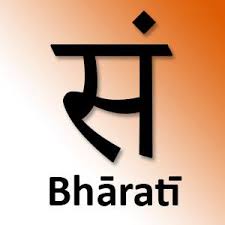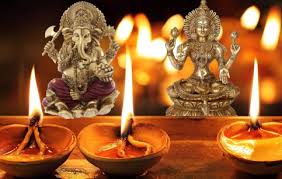





Samskrta
Saṃskṛtm (संस्कृतम्) or for short Sanskrit is an ancient sacred language of bharatavarsha that is the classical literary language of India. The name Sanskrit means "refined", "consecrated" and "sanctified" or "produced in perfect form".
History
It is said that Brahma was the creator and introduced Sanskrit language to the Sages of celestial bodies. Therefore, this language is also called Dev Vani which means "the language of the Gods." The script is called Devanagari, meaning "used in the cities of the Gods." Sanskrit is considered to be the oldest language in the world.The Vedas, the universally accepted first scriptures of humanity, were written in this language and were transmitted directly from the spiritual world at the dawn of creation. Therefore, their language bears the power to connect the reciter and the receptors of mantra and sloka with the eternal spiritual reality. Consequently, Sanskrit produces a transcendental sound vibration which is able to liberate the living entity from the material existence called samsara, the circle of repeated births and deaths. Sanskrit is based on root sounds or vibrations of the Universe. The capacity of Sanskrit vowels and syllables has the potential to generate all the sounds of all words or sounds spoken in any language. This finding implies Sanskrit as universal source of linguistic expression and the mother of all spoken or written languages. Sanskrit has a vast vocabulary than any other language and therefore has a word for all expression. It is said that the language itself arises from the root sounds or vibrations of the Universe. The various vowels and consonants that make up Sanskrit words represent these core sounds, known as bijas. Whilst in states of deep resonance with the cosmos (in other words, while in meditation), the Rishis, the ancient spiritual scientists, could perceive these bija sounds; and from this profound sense of perception, they recognized the inherent sounds. Sound is considered the subtlest of all five elements, and controlling sound can help manipulate matter, as through the chanting of mantras. Sanskrit mantras, when recited in combination with the sound vibration, have a specific effect on the mind and the psyche of the individual. By paying continuous attention to the point of location, degree of resonance, and effort of breath, one's awareness becomes more and more consumed by the direct experience of articulated sound. This in itself produces an unprecedented clarity of mind and revelry in the joy of language. The perfect pronunciation of a Sanskrit word has the power to manifest and/or influence that particular thing. Sanskrit, for this very reason, is referred to as the ‘perfect language’.
The Sanskrit Language
Being one of the most ancient language in the world, for more than three millennia, Sanskrit was the language of science, knowledge, spirituality and culture. Sanskrit is the common language of the Hindu Scriptures and it is the language of the Vedas, Upanishads, BhagavadGita, Mahabharata, Ramayana and the Puranas. Latin and Greek, and most of the modern European languages have been derived from it. Sanskrit use can be traced as far back as before the first millennia B.C.; the only preserved language to which Sanskrit was originally related is Vedic. The oldest example of the literature of the Vedic period is the Rig-Veda. Sanskrit is widely known as the source or root of sciences, including Physics, Chemistry, Botany, Zoology, Mathematics, Agriculture, Environmental Science, Architectural Science, Geometry, Astrology, Metallurgy, Medicine, Meteorology etc. The mystery of all modern sciences was exhaustively known to our ancient seers, poets, writers, and commentators. Hence it is now almost essential for all to read, understand and properly analyze their writings for the all round development of the whole mankind. Sanskrit is a scientific and systematic language. Its grammar is perfect which has been explained to us by the world's greatest grammarian Panini. He was able to join the original devanagari language into an exact framework of rules, thus preserving it for posterity. Since his time, this language is called Sanskrit, “joined together, refined”. The word Sanskrit literally means "Language brought to formal perfection". This is quite an appropriate name since NASA declared it to be "the only unambiguous language on the planet". Recently well-known linguists and computer-scientists have expressed the opinion that Sanskrit is the best language for use with computers.
Relevance of Sanskrit in Modern Time
Sanskrit Diwas(day) was first observed in the year 1969. It is annually observed on the Shravana Purnima day (fullmoon day in the month of Shravana as per Hindu calendar). The main objective of the observance of Sanskrit day is to spread awareness about Sanskrit and itse relevance in current times. By developing proficiency in this language, one could trace the evolution of spirituality as envisioned in the Sanatana Dharma. Sanskrit has so much mystery and mysticism that one could continue to mine it for whatever it is that one is searching beyond the obvious and sensory. Study of Sanskrit, particularly vedic Sanskrit is able to enlighten us and illuminate the darkest passages in the history of human mind. This language gives full freedom in the search of ‘Universal Truth” to the real seeker. The extraordinary thing about Sanskrit is that it offers direct accessibility to anyone to that elevated plane where the two — mathematics and music, brain and heart, analytical and intuitive, scientific and spiritual — become one. "There is no language in India, which can take the place of Sanskrit because no other language has the same intimate contact with the inner spirit of our lives. Sanskrit and Sanskrit alone is associated with the life of the people over the whole country. It is heard in the family circle, in the, market place and in the temple. Let us not play with this great heritage. It can never be replaced but once we lose it, we shall cease to be Indians. Even our political independence will be of hardly much value either to ourselves or to the world at large." – Sri Sampurnananda (Samskritavishvaparishat, Bangalore, May 1966) Considering the importance and relevance of Sanskrit, Master Minood has initiated this move to inculcate Study of Sanskrit language at Temple of Inner Wisdom. We would like everybody to actively participate with full alertness and learning spirit, in propagating this language for self development and continue our spiritual journey till the end. By embracing it, we can definitely enrich our life. We look forward to you taking this next step on your spiritual journey. Relevance of Sanskrit in Modern Time Sanskrit Diwas(day) was first observed in the year 1969. It is annually observed on the Shravana Purnima day (fullmoon day in the month of Shravana as per Hindu calendar). The main objective of the observance of Sanskrit day is to spread awareness about Sanskrit and itse relevance in current times. By developing proficiency in this language, one could trace the evolution of spirituality as envisioned in the Sanatana Dharma. Sanskrit has so much mystery and mysticism that one could continue to mine it for whatever it is that one is searching beyond the obvious and sensory. Study of Sanskrit, particularly vedic Sanskrit is able to enlighten us and illuminate the darkest passages in the history of human mind. This language gives full freedom in the search of ‘Universal Truth” to the real seeker. The extraordinary thing about Sanskrit is that it offers direct accessibility to anyone to that elevated plane where the two — mathematics and music, brain and heart, analytical and intuitive, scientific and spiritual — become one. "There is no language in India, which can take the place of Sanskrit because no other language has the same intimate contact with the inner spirit of our lives. Sanskrit and Sanskrit alone is associated with the life of the people over the whole country. It is heard in the family circle, in the, market place and in the temple. Let us not play with this great heritage. It can never be replaced but once we lose it, we shall cease to be Indians. Even our political independence will be of hardly much value either to ourselves or to the world at large." – Sri Sampurnananda (Samskritavishvaparishat, Bangalore, May 1966) Considering the importance and relevance of Sanskrit, Master Minood has initiated this move to inculcate Study of Sanskrit language at Temple of Inner Wisdom. We would like everybody to actively participate with full alertness and learning spirit, in propagating this language for self development and continue our spiritual journey till the end. By embracing it, we can definitely enrich our life. We look forward to you taking this next step on your spiritual journey.
Learn MoreContact
Magnam dolores commodi suscipit. Necessitatibus eius consequatur ex aliquid fuga eum quidem. Sit sint consectetur velit. Quisquam quos quisquam cupiditate. Et nemo qui impedit suscipit alias ea. Quia fugiat sit in iste officiis commodi quidem hic quas.
Location:
111/47,USRA,Vellayambalam,Trivandrum 695010,Kerala
Email:
namaste@templeofinnerwisdom.org
Contact:
9388818811
